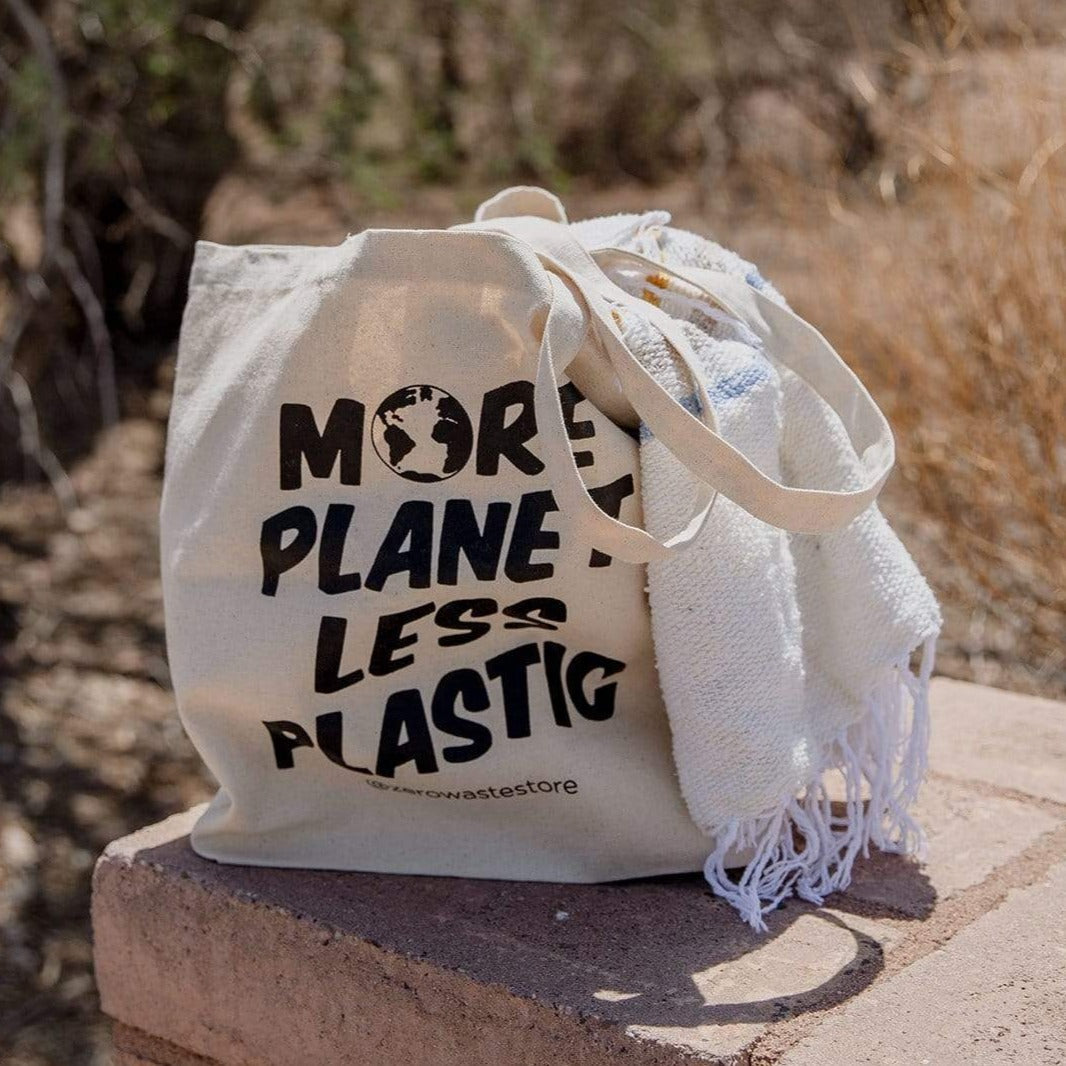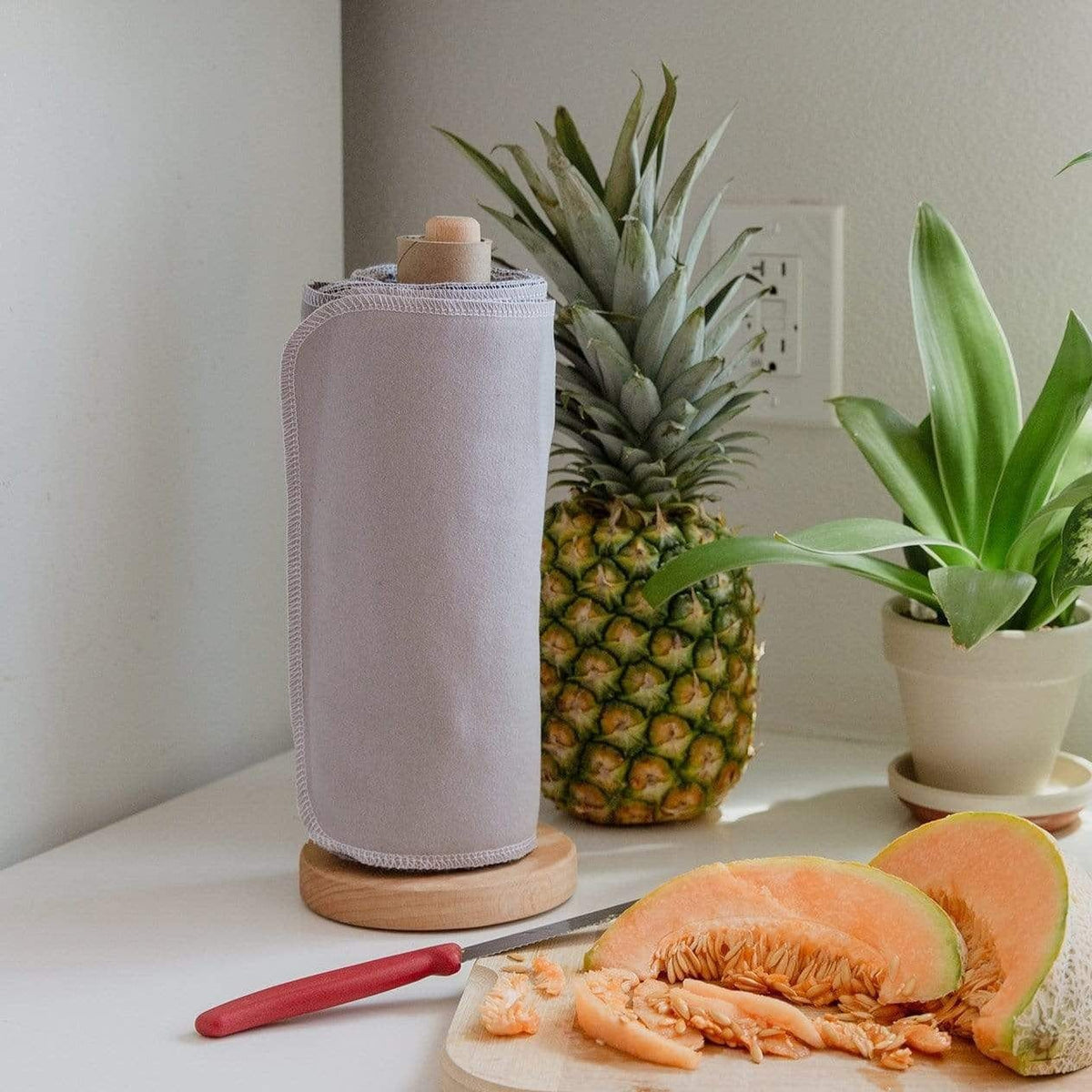6 Turkey Day Tips to Trim Your Waste on Thanksgiving

Thanksgiving in America is one of my most favorite times of the year. And despite what my bathroom scale and bank account might indicate, it’s not [only] because of all the food, football, and Black Friday shopping that comes with the holiday. Thanksgiving is an annual reminder to slow down, take a step back, and reflect on the things that really matter most. It’s a time for each of us to acknowledge our dependence.
Ironically, the dramatic spike in organic waste, food miles (the distance your food commutes to get to your dinner table), and air travel that comes with the holidays causes great harm to the thing that we all depend upon most – the planet! As a country, we create 25% more trash from the period from Thanksgiving to New Year’s during any other time of the year, amounting to an extra 25 million tons of trash that enter our landfills and litter the planet. So before you start counting your blessings this season, check out these 6 Turkey Day Tips you can count on to give a proper zero-waste “thank you” to Mama Earth for providing for us the food we eat, the water we drink, and the air we breathe.

1. B.Y.O.B. (Bring Your Own Bag)
On average, an American household takes home nearly 1,500 plastic shopping bags every year! And of the collective 100 billion plastic bags that the country consumes annually, only 1% is ever returned for recycling. The other 99% is destined to slowly break down for centuries in toxin-spewing landfills or as loose litter, uglifying our landscapes and killing over 100,000 marine animals each year. This year, do the world a huge solid by bringing a reusable bag with you, such as our More Planet Less Plastic Organic Tote Bag, to carry around all your Thanksgiving Day (and every day) groceries in. To further reduce your carbon footprint, take a moment to create a list of everything you will need from the store and combine all of your shopping into as few trips as possible to save time, money, gas, and the environment.
2. Explore Your Eco-Friendly Farmers Markets
Big chain grocery stores and supermarkets typically rely on large, corporate farms to supply you with food that travels long distances to reach your dinner table. Farmers markets, on the other hand, keep their aisles stocked with fresh, organic produce from small and mid-size farmers who practice sustainable agricultural methods. When you shop at a farmers market, your money supports the livelihoods of local farmers, whose sustainable farming practices provide whole foods that sustain your community. Try preparing your annual feast this year with locally-grown produce that will minimize your food miles, as well as your pesticide intake. You’ll only be rewarded with a more flavorful meal that is not only environmentally friendly, but healthy for your body.

3. Don't Let Your Food Go to Waste
‘Tis the season to go splurging. An estimated 200 million pounds of turkey, 40 million pounds of mashed potatoes, and 30 million pounds of stuffing will get tossed in the trash can this Thanksgiving, destined to sit & spew methane gases into the atmosphere from landfills all across the country. It’s also important to remember that all the fertilizer, water, and fuel used to grow and ship your food is wasted along with those discarded leftovers. But with reusable Stasher Silicone Bags, you can reduce Thanksgiving waste and minimize the environmental impact of your holiday feast.
First Plan Out Your Feast
A planet-friendly feast starts with preparing a green game plan. Before you purchase your food, make sure you know how many grumbling stomachs you’ll be responsible for and how much food it will take to fill them. Make a list of all the ingredients you’ll need before heading to the store, stick to your head count, and buy only what you need. Not only will this reduce the amount of trips you’ll have to take and the carbon emissions you generate, you can use the money you save on gas to purchase organic food that also helps the environment.

Set Up a Stasher Leftover Station
As the host of a Thanksgiving feast, you show your appreciation for the people you love by sharing the delicious food you spent all day preparing. With a Stasher Station, you can pack up the excess food and set it out so your guests can help themselves to delicious leftovers to take home with them? If you happen to be a guest, rather than a host, carry any food contributions in a reusable container, such as this Stainless Steel 2-Tier Lunchbox. And don’t forget your Stasher Bags for leftovers, so you don’t have to use disposable bags or containers.
Repurpose Your Leftovers
Sure you can eat the same old turkey, stuffing, and mash for the breakfast, dinner, and lunch for the next few days. But with a simple online search for “Thanksgiving leftover recipes,” you can find countless ways to give your Turkey Day scraps a delectable facelift. Your eco-safe Stasher Bags to keep food stay fresher for longer and your leftovers more flavorful.
Put It On Ice
Just about anything else is fair game. The burp-seal, ziplock bags in our Stasher Starter Kit allow you to perfectly pack away your Thanksgiving leftovers in the smallest airtight container possible to prevent freezer burn. So if you stuff yourself so full that you can’t even look at a turkey for a while, simply bag it up and store it in the icebox. Your future self will thank you for it when the craving comes back.
Compost What You Can't Consume
You might be surprised at all the leftovers and inedible food waste that you can easily compost into a fertilizing agent for your plants and garden. While turkey, ham, and other meats should always be kept out of compost, some common Thanksgiving scraps you can safely place inside your bin include bread, cranberries, potatoes, yams, veggies, fruits, and coffee grounds. Uncoated paper products, such as plates, cups, paper towels, and cardboard food packaging are also great additions for your pile. So instead of tossing out inedible leftovers at the trash can, grow what you throw by aiming instead for the compost bin.
Saving the planet shouldn’t be a strictly seasonal activity. Of the 40 million tons of food that gets wasted in America each year, 95% of it ends up inside landfills where they decay and release greenhouse gases into the air. So getting into a sustainable habit of minimizing your food waste all year long can dramatically reduce your carbon footprint and help fight climate change.

4. Start a Tree-Free Tradition
Paper products account for nearly 30% of all the trash sent to landfills. Most dinner guests usually won’t jump at the opportunity to clean that post-Thanksgiving pile of dirty dishes sitting in your sink, but you must resist the temptation of using paper products at your annual feast for the sake of the planet. Instead of disposable tableware, you can use your favorite set of dishes and utensils, and replace the paper towels & napkins you normally might use with Marley’s Monsters Unpaper Rainbow Towels will add more color to your table and less waste for your trash can.

5. Green Up When You Clean Up
Currently, about 51,000 trees being chopped down each day to replace all the paper towels being used and discarded around the world, resulting in 254 million tons of paper waste each year. This timber-killing trend is creating an environmental mess that no amount of paper towels in the world will ever be able to clean up, and it’s just simply unsustainable. More forest-friendly ways for wiping up kitchen spills exist in products like Marley’s Monsters 100% Organic Cotton Reusable Unpaper Towels, an endlessly washable paper towel swap that help keep our precious forests intact.
6. Sustainable Travel is Smart Travel
The Wednesday before Thanksgiving is one of the busiest days to travel in the year. Automobile travel alone burns nearly a half billion gallons of gas every Thanksgiving, which adds up to an extra 4 million metric tons of carbon emissions being released into the atmosphere. That’s not even accounting for the 31 million travelling by airplane this holiday. Here are some smart travel tips that you can use to minimize your carbon footprint during this annual trek for turkey.

Take a Year Off
Obviously, the most effective way to reduce travel-related carbon emissions is to not travel at all. You don’t have to forever cancel Thanksgiving altogether. But if it’s something that works for your family, travelling every other year is one way to essentially cut your whole family’s Thanksgiving emissions in half.
By Bus or By Train
Not only do these forms of transit reduce roadway congestion, consume less energy, and save you on gas, making your holiday trips by bus or train is friendlier to the planet. One bus can replace up to 55 cars on the road, and trains emit around 70-75 percent fewer emissions when compared to cars and airplanes.
Purchase Carbon Offsets
If you must travel this Thanksgiving, buying carbon offsets can actually keep your commute carbon neutral. Carbon offsetting is simply a method in which you can use one emission-reducing action to compensate for carbon emissions you produced with another activity. By purchases offsets, your money directly funds environmental projects that remove greenhouse gases from the air.
Sneak Off During Off-Peak
You can pretty much expect Thanksgiving traffic to always be much heavier than just about any other day of the year. But the less time you have to spend stuck in traffic, the less time your car will have to burn fuel and emit carbon emissions. Google’s Mapping Thanksgiving site is a helpful tool for sustainable travelers looking to time their trips during off-peak traffic hours of the major cities across America.

